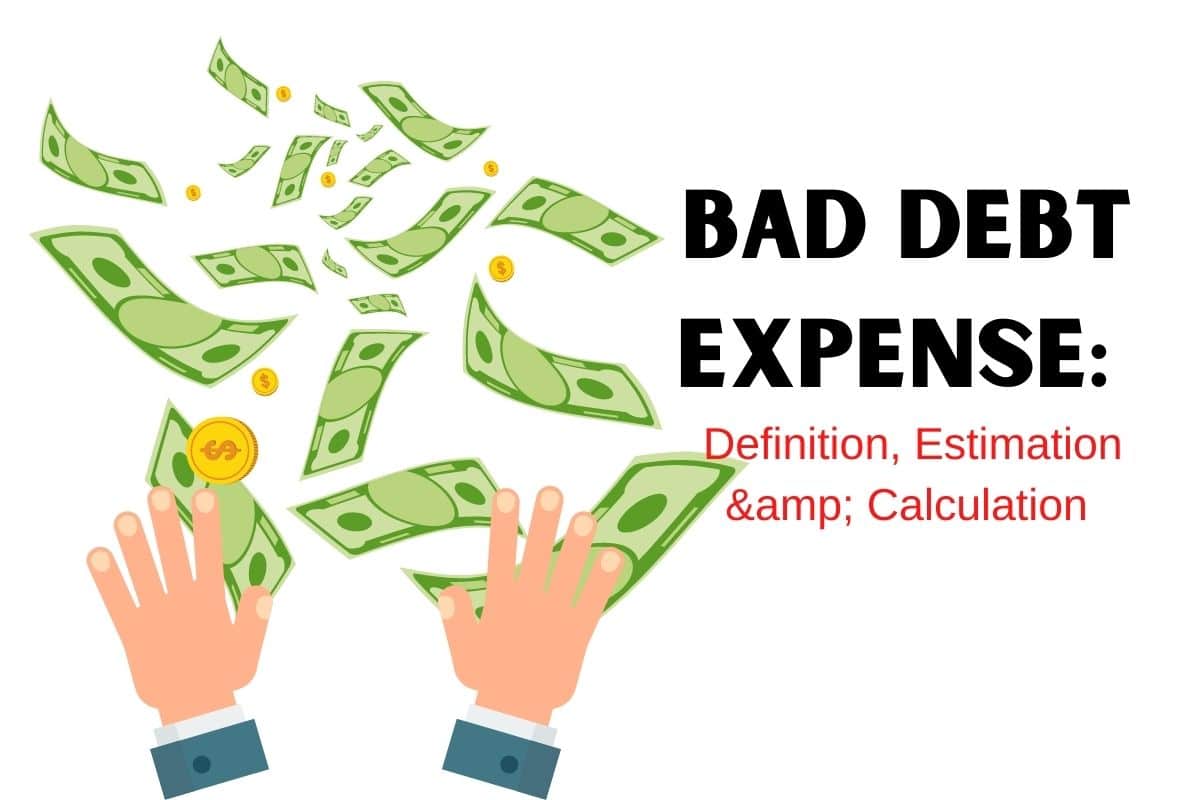Obtaining a home equity loan with bad credit can be difficult, but it is not impossible. It all depends on the type of home equity loan you desire, your salary, and the amount of real estate you possess. A home equity loan is one option if you have bad credit and need money for an emergency fund or to pay off debt.
A home equity loan is a type of secured loan that uses your home as collateral, allowing you to borrow up to 80% of your home’s worth. The interest rate will be determined by the amount of equity you have in your home and the type of loan you obtain.
If you want to receive a home equity loan with bad credit, keep reading.
Best Home Equity Loans for People with Bad Credit
Some lenders specialize in providing bad credit loans, such as home equity loans. These may have higher interest rates than those for solid-credit homeowners. They do, however, allow people with bad credit to borrow against the equity in their home to undertake home improvements or other large purchases.
Here are the best home equity loan firms for folks with bad credit that we’ve found:
#1. eMortgage
- Get the most recent mortgage rates from the best mortgage lenders and institutions.
- Simple comparison and selection of mortgage providers with no obligations or fees
- Examine current mortgage rates in comparison.
- Choose mortgage lenders who can meet your individual requirements.
- Compare mortgage rates from pre-qualified and approved lenders – 100% online and 100% free.
eMortgage assists consumers in shopping for loans from its extensive lender network. Simply complete the home equity request form by entering the value of your home, the remaining mortgage balance, the amount you wish to borrow, and your contact information. It will send your request to its lender network, and you will receive up to five competing offers within minutes.
You choose the loan you want and can either apply online or speak with loan officers if you have queries or want to haggle over the pricing.
#2. Rocket Mortgage
- Rocket Mortgage is the largest mortgage lender in the United States.
- The entire procedure is carried out online.
- Mortgage options for new loans and refinancing current loans
- Customer service that has won awards and cutting-edge digital platforms
- More than 90% of their customers would suggest them.
Rocket Mortgage, America’s largest mortgage lender, is certainly familiar to you. It can also assist you in obtaining a home equity loan if you meet its conditions, which include an examination of your equity (as established by an appraisal), credit score, and debt-to-income ratio.
According to the lender, even if you’re lacking in one area — in this case, credit score – the other two can “help increase your eligibility.” So, if you have significant equity and a DTI ratio of less than 45%, your low credit score should not prevent you from obtaining a home equity loan with Rocket Mortgage.
#3. Quicken HELOC
- Quicken provides home equity lines of credit for home improvements, significant purchases, and other costs.
- It is necessary to have 15% to 20% equity in your home.
- A relatively low-cost method of obtaining additional funding
- During the draw period, you will make minimum payments and greater payments during the payback period.
Rocket Mortgage includes Quicken Loans. It assists clients in obtaining a variety of home loans, including home equity lines of credit. A home equity line of credit, or HELOC, is similar to a credit card that you can use as needed rather than the substantial lump sum payment that a home equity loan would provide.
HELOCs continue to utilize your home’s equity to offer you a secured credit line. There are normally a few years of withdrawal followed by several years of repayments – commonly 10, 15, or 30. HELOC interest rates are equivalent to home loan rates rather than credit card interest rates.
#4. Wells Fargo Home Mortgage
- Easy to OwnSM programs provide solutions for people with low income, a limited credit history, and small down payments.
- With seller contributions, there is the potential for little out-of-pocket expenses.
- Loans that do not require monthly mortgage insurance are available.
- Less money is needed upfront for a down payment and closing charges.
Wells Fargo Home Mortgage offers online mortgage calculators to assist you in determining how much of a home equity loan you are eligible for. The loan can be used to repair, maintain, refurbish, or remodel your home.
Simply enter the amount you wish to borrow, the valuation of your home, your current monthly mortgage payment, your existing mortgage balance, and the interest rate you are now paying, and it will generate proposals for you.
You must also supply your credit score, as well as the state and county where you live. However, don’t assume that a strong or excellent credit score is required – Wells Fargo offers bad credit loan possibilities, so it’s worth checking to see what you can qualify for.
#5. Bank of America Mortgage Corporation
- Down payment and closing cost help are available through loan programs.
- Variable and fixed-rate loans are available, with qualification limits that are flexible.
- For qualifying customers, up to 100% financing is available with as little as no down payment.
- There are no upper income/earning limits.
Bank of America, another well-known lender, also provides home equity loans to persons with bad credit.
To apply, it urges online banking users to complete their requests more quickly by checking in to its portal and prefilling their requests with account information. If you are not currently a Bank of America online customer, you can still apply online, however, you will need to fill out more information.
What is the minimum credit score for a home equity loan?
620
Many lenders may establish a minimum credit score of 620 to qualify for a home equity loan – though, in rare situations, the restriction might be as high as 660 or 680. However, there may still be opportunities for bad credit home equity loans.
What can stop you from getting a home equity loan?
- A low credit score.
- Inadequate home equity.
- Unstable employment or earnings history
- A high debt-to-income ratio.
How to Apply for a Home Equity Loan with Bad Credit
Home equity loans are available even if you do not have good or great credit. Here’s what you should do before applying for a home equity loan.
#1. Examine your credit report
Check your credit report to discover what lenders will see before they do. AnnualCreditReport.com allows you to view yours for free once a year from each of the three main credit bureaus. Due to COVID-19, however, you can check it monthly until April 20, 2022. This permits you to correct any mistakes or improve your credit before applying for a home equity loan.
#2. Determine your debt-to-income ratio.
Before determining how much you may withdraw, determine how much you can afford by calculating your DTI.
Your DTI is calculated by dividing your monthly debt commitments by your monthly gross income. Add up all of your monthly debts, including loans, credit card payments, and any other financial responsibilities, to calculate your DTI. Divide this figure by your monthly gross revenue. If your monthly debt is $2,000 and your monthly gross income is $5,000, your computation would be as follows:
- $2,000 divided by $5,000 equals 40% DTI
- You can also use a DTI calculator to make things easier.
Lenders are frightened off by a higher DTI because you have less money to spend toward other expenses, such as a home equity loan. Even if you’re making payments, there’s a risk you’ll have a financial setback that makes repaying your home equity loan difficult, if not impossible.
You’ll want to maintain your DTI as low as feasible, but it should ideally be less than 43%.
#3. Ensure that you have sufficient equity
Lenders normally want at least 15% or 20% equity in your home, and the more equity you have, the lower your interest rate will be. The loan-to-value ratio, or LTV, determines your equity. The LTV ratio is computed as a percentage by dividing your outstanding loan total by the current worth of your home.
An appraiser, for example, may determine that your home is worth $400,000. Your LTV is 62.5 percent if you still owe $250,000 on the loan ($250,000 / $400,000 = 0.625). This means you have 37.5 percent equity in your home, which is likely sufficient to qualify for a home equity loan.
#4. Determine how much you need.
It’s simple to borrow more money than you need simply in case something unexpected happens. Most lenders will enable you to borrow up to 80% or 85% of your home’s worth (less existing mortgage commitments), however, others may go higher.
Using the preceding example, you would perform the following calculations to determine how much you can borrow:
- $400,000 (the value of the home) multiplied by 0.85 (the highest percentage you can borrow) equals $340,000. (the maximum amount of equity available for borrowing)
- $340,000 (the maximum amount of equity that can be borrowed) minus $250,000 (the outstanding mortgage balance) equals $90,000 (the total amount you can borrow from a home equity loan)
Remember that just because you qualify for a $90,000 loan doesn’t mean you should apply for it.
Borrowing more than you need will just increase your monthly payments and the overall amount of interest you’ll pay.
#5. Examine interest rates
Your interest rate is determined by a variety of criteria, the most important of which is your credit score. Your interest rate will be greater if your credit score is low.
A borrower with a credit score between 620 and 639, for example, would pay an average interest rate of 10.88 percent on a $50,000 15-year fixed home equity loan. According to FICO data, this is more than double the interest rate of a borrower with a top-tier credit rating. Someone with a low credit score will pay over $200 extra each month for the same loan size. Please see the graph below.
Interest rates and payments for a $50,000 home equity loan over 15 years
| FICO SCORE RANGE | INTEREST RATE | MONTHLY PAYMENT |
| 740-850 | 4.78% | $390 |
| 720-739 | 5.15% | $399 |
| 700-719 | 6.4% | $433 |
| 670-699 | 7.78% | $471 |
| 640-669 | 9.28% | $515 |
| 620-639 | 10.78% | $561 |
#6. Make use of a co-signer
If your credit is so bad that you can’t get a loan on your own, applying with a co-signer might assist. A co-signer applies with you for a home equity loan. Even if they do not intend to make payments, they are legally responsible for repaying the loan. If you default on your loan, their credit suffers along with yours.
It is critical to exercise caution when applying for a loan with a co-signer. If you are unable to make payments, establish guidelines and expectations, and be transparent with your co-signer if an issue arises. If you have a history of missing loan payments or are unable to pay on time, you should reconsider hiring a co-signer.
#7. Think about improving your credit first.
Improve your credit and reduce your debt relative to your income to boost your chances of approval.
- Examine your credit report for any inaccuracies, such as credit lines you did not create, or other concerns, such as past-due payments.
- Every month, pay your bills on schedule. At the very least, make the minimum payment, but aim to pay off the entire sum.
- After you have paid off your credit cards, do not close them. Either leave them alone or set up a monthly recurring payment. Closing cards lowers your credit utilization ratio and may lower your credit score.
- Don’t overspend or open new credit cards. When you max out your credit cards, you have a high credit utilization ratio, which makes you appear to be an irresponsible credit user.
- Pay down existing credit card debt to keep your utilization rate below the recommended 30 percent.
It will take time to repair your credit. Discipline and time are required. However, the benefits of improving your creditworthiness and attaining financial freedom are well worth the effort.
#8. Try a lender with whom you already have a relationship.
If you have bad credit, you may be able to secure a home equity loan by contacting a lender with whom you already have a relationship.
A lender may be more ready to work with you and examine variables other than your credit score as part of the application process if you are an established customer. For example, if you hold a mortgage with a lender and have a consistent history of paying on-time monthly payments, you may be able to qualify for a home equity loan.
“A loan officer who is knowledgeable with the specifics of an applicant’s circumstance can assist them in presenting it to an underwriter in the best possible way,” DiBugnara explains. “However, the underwriter will ultimately decide based on the bank’s guidelines and the perceived risk level of the loan.” The lower the credit score, the more the danger the individual is deemed to be.”
Can I Get a Home Equity Line of Credit (HELOC)?
With bad credit, borrowing money will be more difficult, but getting accepted for a HELOC is feasible. However, because of your poor credit score, you may have to pay more in interest.
What is a HELOC?
A HELOC is a credit line that functions similarly to a credit card. Your home, like a home equity loan, serves as collateral to secure the loan. This loan product allows you to borrow money as needed. There is a draw period at the start of the loan that normally lasts 10 years. You are responsible for making interest-only payments throughout this draw time.
However, once the draw time expires, you must begin making payments toward the remaining balance’s interest and principal. In addition, if you sell your home during the period of the loan, you must pay off the remaining sum in full.
HELOCs, unlike home equity loans, generally feature variable interest rates. To get the best interest rate, you must have a decent to excellent credit score, a low debt-to-income ratio, and a steady source of income.
The Dangers of Bad Credit HELOCs
When you take up a HELOC with bad credit, one of the biggest concerns is that you won’t get the greatest interest rate. This may increase the cost of using this option. Furthermore, because interest rates fluctuate, it is more difficult to budget for loan repayment. If interest rates rise, your borrowing costs may rise as well.
Another risk is withdrawing too much money before the draw period is through. Although you only need to make interest payments during the draw period, keep in mind that you will be required to repay the principal in the future. Don’t borrow more than you can afford to pay back.
Finally, the most serious risk of obtaining a HELOC with bad credit is losing your home if you are unable to repay the loan. Because your home serves as collateral for the loan, the lender may foreclose on your home if you fail to repay your debt.
What’s the easiest loan to get with bad credit?
Payday loans, automobile title loans, pawnshop loans, and personal installment loans are probably the easiest to obtain accepted for. These are all short-term cash solutions for needy individuals with bad credit. Many of these solutions are intended to assist debtors in need of quick cash.
Alternatives to a Home Equity Loan if You Have Bad Credit
If you have bad credit, you may be unable to obtain a home equity loan, but you may have other options.
#1. Personal Loans
Personal loans, like home equity loans, have different lender requirements. Although a low credit score may result in denial, certain lenders have choices for low-scoring clients. You only need to look for them.
Personal loans often have shorter repayment durations, ranging from five to seven years. Your monthly payments may be higher than if you took out a home equity loan. Some lenders provide loans of up to $100,000, similar to a home equity loan, although many limit their sums to less. This may influence which lender you choose.
Personal loans are unsecured, so you must have a decent credit score or a co-signer to qualify. If you have bad credit, you can get a personal loan, but the interest rate will be significantly higher than on a home equity loan. If you have very bad or fair credit, for example, a credit score ranging from 300 to 669, your estimated APR could be between 17.8 percent and 32 percent.
#2. Cash Out Refinance
You pay off your old mortgage with a new, larger loan and receive the difference in cash with a cash-out refinance. For a cash-out refinance, many lenders want at least 20% equity in your home.
If you can acquire an equivalent or lower interest rate, a cash-out refinance may be the best option. You will pay higher interest over the loan’s term, which might be 15 to 30 years. Remember that there are lender fees and closing costs associated with refinancing a mortgage.
Conclusion
Bad credit can make it difficult to borrow money, including for home equity loans. Those with weaker credit scores, on the other hand, can still qualify for second mortgages if they have low debt-to-income ratios and at least 15% equity in their home. Borrowers with bad credit may also demand larger earnings than those with strong credit, however, particular requirements differ per lender.
- How to Calculate Home Equity with Practical Examples & All You Need
- LINE OF CREDIT: Best UK Practice And What You Should Know
- HOW TO QUALIFY FOR A MORTGAGE
- RENTING WITH BAD CREDIT: Even With a History of Evictions
- GROWING EQUITY MORTGAGE: Definition, Examples & All You Need
- Home Remodel Loans: Everything You Should Know






